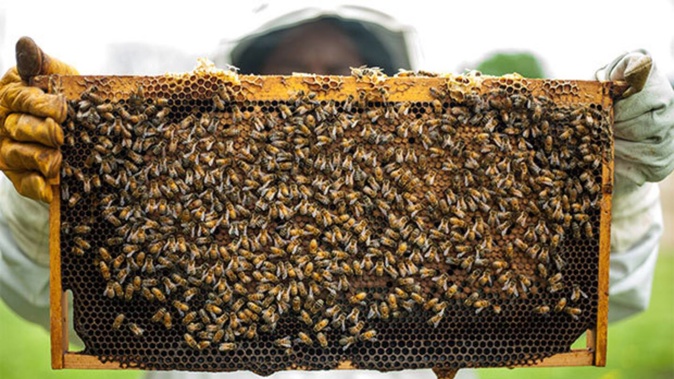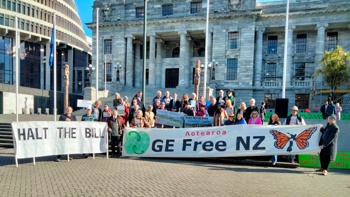
By Monique Steele of RNZ
Things are getting sticky for the country’s honey sector, as the lack of a united voice for the country’s thousands of producers, beekeepers and exporters continues to sting its leaders.
Apiculture New Zealand (ApiNZ) was formed in 2016 to better represent the approximately 7500 backyard and commercial beekeepers, as well as honey marketers.
It was the result of an industry restructuring of the National Beekeepers’ Association and Federated Farmers’ Bee Industry group.
Since then, however, there have been rifts among industry groups, charitable trusts and agencies, prompting questions around the future of the sector’s advocacy group and their viability moving forward.
ApiNZ chief executive Karin Koss said it was “tough times” for the sector at present.
“We have seen, obviously, the industry contract from close to one million hives to now just sitting at 500,000,” she said.
“So there have been some dramatic shifts in our industry, and that has had an effect on ApiNZ.
“We’ve seen our income fall year after year as well.”
Koss said a potential dissolution of the group was tabled in March, but members voted “overwhelmingly” for it to find a way through.
ApiNZ received $150,000 from the Honey Industry Trust towards the new project to “regenerate apiculture leadership”.
“Our members have asked us to re-look at a model, find a way to see if there is some sustainable funding, industry-good organisation models that we could come up with.
“And that’s exactly what we’ve set out to do.”
She said it was asking members to reconsider its future in light of the project, and they would cast their votes at its annual general meeting in Christchurch on Thursday.
Jane Lorimer, president of NZ Beekeeping Incorporated, said the industry was divided into various advocacy and support groups nationally and regionally.

Honey exports earned $420 million in the year to June. Photo / RNZ, Sally Round
The needs of beekeepers, many of whom were struggling with hive losses due to bee health challenges like varroa mite and American Foulbrood, were being overlooked, under the current advocacy model, she said.
She said it met with groups across the spectrum recently to address the issue.
“The problem with Apiculture New Zealand is that it ended up having marketers in the same room as producers, and our needs are quite different,” Lorimer said.
“Last year, all that we all we were hearing from beekeepers was, ‘want to be heard’.
“There’s not been the communication going back to the beekeepers who are, of course, the backbone of our industry.”
Keepers were facing a number of fees and levies within the sector, and to export honey, with many now working below the cost of production, she said.
Also a life member of ApiNZ, Lorimer said, while the sector had not been united in the past, it was being explored.
“We see that we really do need to work together in a process for the good of the industry and work as a single unit towards a united industry,” Lorimer said.
NZ Beekeepers Incorporated was voluntarily funded by members, she said.
ApiNZ chairman Nathan Guy said on social media that it recognised a new model of leadership and representation was needed.
“For various reasons, some have felt that existing bodies do not meet their needs,” he said in a Facebook post.
“However, ApiNZ believes many of these operators would be open to supporting a representative body that delivers meaningful value.”
Honey exports earned $420 million in the year to June, largely to the main importer, the United States, according to the Ministry for Primary Industries’ Situation and Outlook for Primary Industries report.
Meanwhile, the responsibility of enforcing the pest management plan for the devastating bacterial disease American Foulbrood was transferred from ApiNZ late last month to the New Zealand Bee Health and Biosecurity charitable Trust (formerly the AFB Management Agency board), which already collects levies.
Koss said it was supportive of the move.
- RNZ
Take your Radio, Podcasts and Music with you









